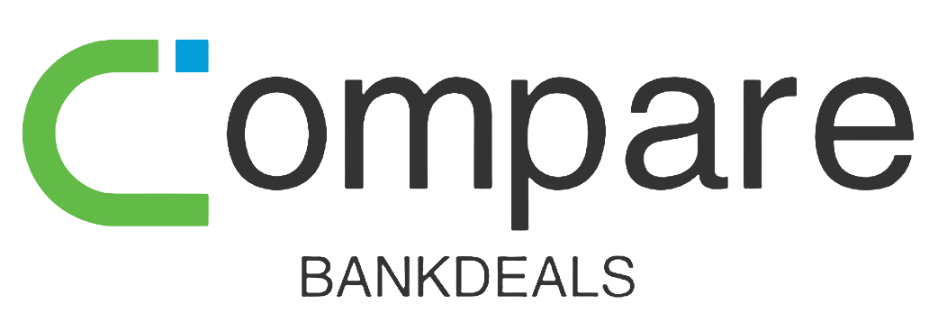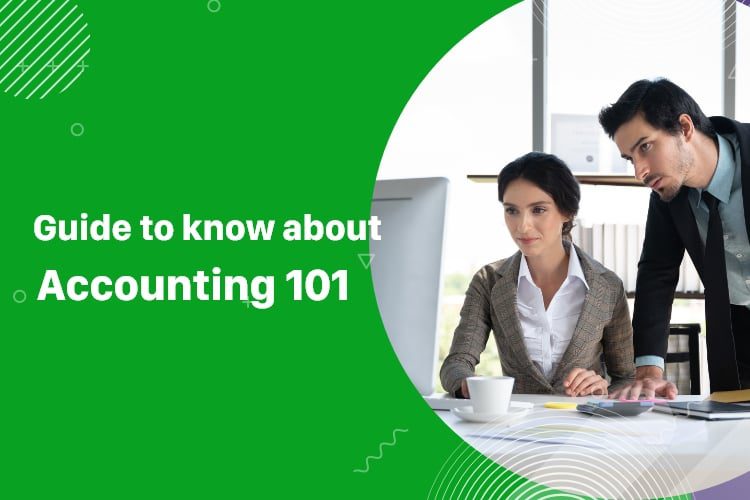In every business accounting is the key factor to maintain financial records. Everyone thinks that accounting is very knotty and couldn’t understand the basics of accounting. The general word of mouth is it is complex but it is a misconception. Accounting is quite tricky but if the basics are strong enough accounting is very simpler. Accounting 101 is the concept that pops out to knowing the basics of accounting and its workings.
By this, we can learn the basics of accounting and can change the perspective that is stored in our minds. It gives the picture that accounting is simple but the involvement in tasks is very important. We will be in oscillation that where to start the exact frame is coming in the following.
Here in Accounting 101, we can see the basics of accounting and the basic accounting 101 concepts that everyone needs to be known.
Accounting
Accounting is the process of recording the financial statement of a business. In accounting, it includes analyzing, reporting, calculating, and summarizing the transactions that happen in the business. It is the huge responsibility of an accountant to note the exact transaction of the business to track the growth, position, credits, debits, and goes on. There will be a track of accounts receivable and accounts payable 101 too.
Accounting process
The accounting process is not only done by an accountant it runs with a set of team members with different roles. The bookkeeper also plays a major role in accounting. The accounting process is done for a small size business to a multinational business.
The accounting process is the same but it differs according to the business size and its needs. In small business accounting, 101 should be taken care of while entering the data and should maintain the records in a proper manner. Accounting is the process where we take financial reports of the company to know the spending done by the company and to make sure the works are done correctly as per the planned budget.
The bookkeepers are the players who note even the penny in the records to avoid confusion at the last minute of tax dues. They enter all the credits and debts that happen from the organization.
Recording the statement and keeping the record up to date benefits us to avoid the penalties. It is very easy to track the financial records and it helps to move forward the business to the next level.
Important types of accounting.
- 1. Financial Accounting
- 2. Managerial Accounting
- 3. Income Tax Accounting
- 4. Cost Accounting
- 5. Audit Accounting
1. Financial Accounting
Financial accounting is those in which the financial statements are recorded. The financial statement includes a balance sheet, Income statements, and all the activities through finance.
When it comes to financial accounting 101 the balance sheet, income statements, and all the incoming cash flow statements should be registered as per the law. It is law-based accounting.
Let us see the example to understand more about the financial statement and how it is important in accounting.
You have an asset and you have planned to build a luxury house but the drawback is you don’t have money in hand and you need to borrow a loan from the bank.
In this scenario, we need to submit the records to the bank to verify whether you are eligible for a loan or not. The deciding authority is from our side. If the records are right and we have filed the taxes with proper statements then there is no fear of loans.
The important note is we need not give in detail transactions to the bank or any finance-providing companies. We just need to provide a summary of the financial records that we maintain. This is the power of financial accounting.
2. Managerial Accounting
Managerial accounting is a type of accounting. It is the process of analyzing, estimating, identifying, and instructing accounting. The only difference in the process is this information is discussed with the managers more frequently we need to use those data internally to make internal decisions. That is called managerial accounting
Managerial accounting is used inside the organization with the managers to take care of the company’s growth. The managers used to analyze the process and the financial planning for the company to reach its goals.
The discussion between the management and the managers discusses the business to be processed or the secrets to be discussed internally in the organization.
For example, let us take it as a manufacturing business accounting 101. Here the manager has the right to discuss the products, goods, and services. It has to be noted and will have a plan and structure the plan to make the business move to the next level.
These are the main facts about managerial accounting.
3. Income Tax Accounting
Income Tax Accounting is the most important type of accounting where it deals with the legal obligations. Income tax accounting is one of the major accounting where we pay tax to the government. If we have the proper record maintenance then there is no issue of penalties.
Income Tax Accounting differs from small-scale companies to multinational companies. For income tax accounting they use to discover the set of books to be focused on and recorded.
The books they focus on are
Financial Accounting – It takes care of all the financial statements even outside of the companies too.
Managerial Accounting – It takes care of the accounting part that happens inside the company between the managers and the management.
Bookkeeping – It takes care of the laws of the government to be focused on these sectors.
These are the three sectors that are mainly focused on Income-tax accounting. It is not the same report which you give for the financial statements it is more than that it covers all the legal and business details to be filed and noted for the next process.
Having the income tax accounting represents that we are legally obeying the law in which the government provides. These are about income tax accounting.
4. Cost Accounting
Cost Accounting is another type of accounting that relates to managerial accounting. In Cost accounting, the transactions and all other activities happen inside the organizations. In cost accounting, they evaluate the total cost for the company through two main costs that are fixed cost and Variable cost.
(i) Fixed cost
Fixed costs are those in which the prices have been fixed and there is no change in it. For Example, let us take a house for lease. Here there is a fixed amount established for the house and there will be no change in the amount. It can be related to all businesses.
(ii) Variable Cost
Variable costs are those in which we cannot assign the exact cost for the products it is based on the requirements. Let us take an example of the Wedding Stage. They start to decorate the stage using balloons but the thing is they can’t assign the exact balloon count for the stage it differs according to the needs of the clients. It can be related to all businesses.
5. Audit Accounting
Audit Accounting infers a vital function in guaranteeing an organization’s records are exact and accounts are being circulated most attractively or proficiently.
In Audit Accounting they mostly check with the credits and debits that occur in the organization to stabilize the errors or overflow of cash or demand of amounts of cash. The audit and check the mistakes and clear the accounting mistakes which have been completed. Through auditing, we can come to know the profit and loss of the business that runs in the company.
In auditing, they have internal auditing and external auditing. It depends upon the company to keep the audit accounting internally or not. Whereas the accountant asks the support of the auditor to know more details about the transactions.
In audit accounting, they do not leave any of the records to be missed. It has been noted by the auditing team in-depth to utilize the financial transactions mentioned by the accountants. If any errors or mistakes in it they clarify as per the rules followed in the company to avoid all sorts of confusion.
Instructions to set up an accounting framework for your independent company
Luckily, the present private venture bookkeeping programming applications make the work very simple, for example, QuickBooks Online, Xero, and FreshBooks are intended to make it simple to set up your business.
While entrepreneurs can utilize bookkeeping software, it’s true to your greatest advantage to discover bookkeeping software as you wish, and start setting up your business.
1. Make a graph of records
Once more, by utilizing accounting software, this cycle is generally computerized and very easy, and ready to use for the entrepreneurs and the default outline of records given in the product.
2. Decide your accounting strategy
When doing transactions, you need to decide whether it should be a simplified method or an accrual method. In this case, if you have employees or there is a bunch of inventories that should be maintained then your option should be the accrual method.
3. Group up early balances, if any
If you are new to the business industry you would have a minimal amount. In this scenario, there is less chance of using accounting software. So, they need to enter their starting balance into the proper ledger accounts.
4. Start entering financial transactions
Whenever you’ve innovated your diagram of records, pick your accounting strategy, and entered your starting balance into your present programming application, at that point you can start to enter your monetary transactions
Benefits of having an accounting software
A long time back, entrepreneurs frequently wound up and lost when it comes to analyzing and exploring accounting tools.
Today, these applications have made the whole cycle a lot simpler, utilizing natural information passage screens while supplanting obsolete terms with recognizable jargon that the vast majority of us are now acquainted with.
(i) A decrease in mistakes
Accounting tools are designed exactly to capture the data of financial transactions such as cost, invoices, and text, and also reduce input errors. Software is very useful to reduce and identify human errors in the software. When we input manually there is a possibility of error when we do it carelessly. When using the software, the mistakes can be reduced and show the mistakes in the software if anything is done.
(ii) Free time
We need to take additional time to complete the financial statements when we do handwork. It may occur to error if we are careless and that may lead to worse situations. When we use accounting software, we can save time when the machine does work for us. When we use the software, it captures and gives the almost completed work. So, we can save time and concentrate on our growth and additional skills.
(iii) Financial Reports
Reports are the most important sector in which we can analyze the rankings and position of the company. When we maintain a spreadsheet report we can’t assure that error doesn’t exist. It happens when human works manually. But when we use accounting software, we can generate the report in seconds such as financial statements, balance sheets, and cash flow, with the accurate result that the client expects.
Find the right accounting solution for your business
From this blog, we can know the basics of accounting 101 and the workings done by the professional accountant. These are general basics that we all need to know about accounting 101.



